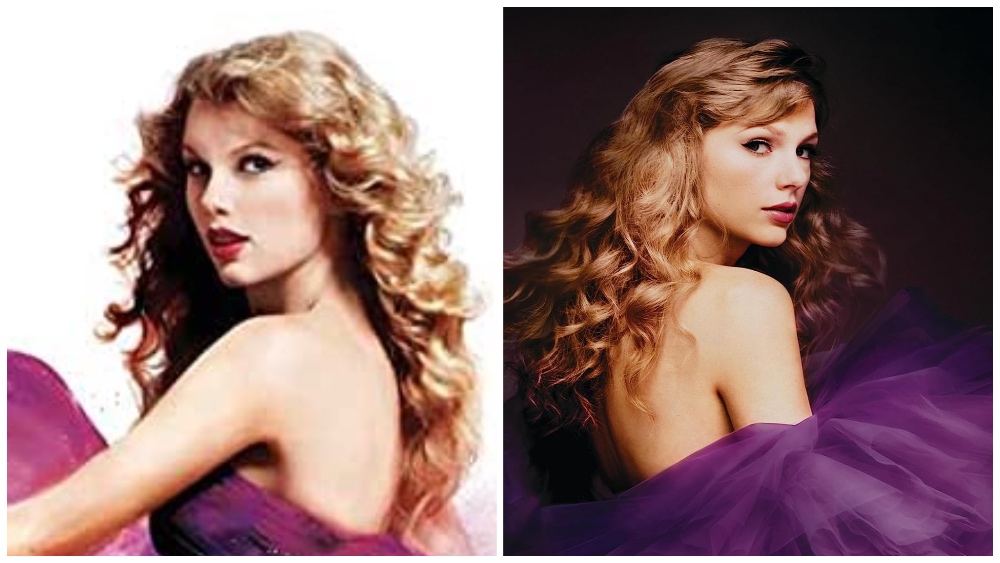
Leading into the release of “Speak Now (Taylor’s Version),” one of the hottest topics of speculation among Taylor Swift fans and observers was whether she might change a specific line in “Better Than Revenge” that some felt had not dated well since the original recording came out in 2010. The conjecture was on point: She indeed rewrote the lyric in question for the 2023 version.
For the last 13 years, a particularly quotable diss line stood as: “She’s better known for the things that she does on the mattress.” In “Better Than Revenge (Taylor’s Version),” the line has been rewritten to: “He was a moth to the flame, she was holding the matches.”
“Matches” is a less perfect rhyme than “mattress” for its matching line, “She’s an actress” (which was thought at the time to be the real-life profession of the woman Swift wrote the song about). But the substituted line is a better match for her feminist credentials as an adult, since she has often spoken in subsequent years about how women’s dating lives, including her own, should not be up for judgment.
The switch was no surprise, although Swift had not tipped anything about a change ahead of the new “Speak Now” being officially unveiled Thursday night at midnight ET. In the weeks leading up to the release, thousands of social media posts and even some long think-pieces had been devoted to whether or not she should re-write the line, which many now view as anti-feminist or “slut shaming.” While many argued that Swift at 33 should present a more progressive view of women’s sexuality than she had when she wrote the song at 19 or 20, others argued that the lyric should be preserved the way it was written.
Confirmation of the rewritten lyric was widely disseminated Thursday afternoon as a few fans received their copies of “Speak Now” early and shared screenshots of the lyric sheet. Early reaction among Swifties on social media seemed split down the middle, with some fretting that they would have to disobey orders and pull out their old Big Machine copies to enjoy the fan favorite as they remembered it.
Rolling Stone essayist Larisha Paul took that view, in part, when she wrote in May, “Changing the past now, or using it to make some grand feminist statement, would not only feel dishonest, but it would also compromise her goal of draining all of the value from her original recordings after they were tossed around and sold without her permission.” The writer advocated for keeping the song as historically conceived, as “a crucial point in Swift’s complicated journey through coming to an understanding of intersectional feminism.”
But for most Swifties, the idea that the lyrics would be updated was a fait accompli. That didn’t stop a lot of them from creating memes about how devastated they were about the change — although, to be fair, most of them seemed to be tongue-in-cheek statements about their attachment to nostalgia, not serious critiques of the switch. (Scroll down to see some of the funnier GIFs reflecting fans’ mixed feelings.)
Swift wrote a lengthy “prologue” that is included in the packaging of “Speak Now (Taylor’s Version),” but it does not address “Better Than Revenge,” and the singer has not done any interviews to discuss the new release — the third in a series of six re-recordings of her Big Machine catalog.
It’s not the first time Swift revised a lyric she wrote as a teen that got called into question later, although this one was longer in coming. The original version of “Picture to Burn” on her 2006 self-titled debut album had the 16-year-old singing, “So go and tell your friends that I’m obsessive and crazy / That’s fine, I’ll tell mine you’re gay, by the way.” By the time a pop remix was sent to radio, and a deluxe version of the album replaced the original, that couplet had been changed to: “…That’s fine, you won’t mind if I say, by the way.” Avoiding the appearance of homophobia made that one much more of a no-brainer, even if, even today, some of Swift’s LGBTQ fans say they thought the original was fine.
When it comes to “Better Than Revenge,” Swift and her tourmate Hayley Williams, of Paramore, have something in common. Williams announced in 2018 that her band would stop performing its biggest hit, “Misery Business,” because of a line she also had written as a teen that had been called “misogynistic”: “Once a whore, you’re nothing more.” In 2022, though, she had a change of heart and started performing it again — although she has refrained from singing the line in question herself, even as the crowd picks it up.
There is a long history of performers changing disputed lines that are viewed as insensitive — including a recent one, when last year both Beyonce and Lizzo reissued their summer albums with a word edited out that refers to physical disabilities but is casually used as slang. Black Eyed Peas released and then recalled a song that had a different slang word for mental disabilities in the title, with the revised tune going on to become a hit. Elvis Costello announced that he would stop performing “Oliver’s Army,” a song that included a politically ironic use of the N-word, rather than continue to sing a self-censored version, but at a concert this year he introduced a fresh version that included an entirely new verse.
One thing is for sure, as Swift continues to re-record her old albums: In these “Taylor’s Versions,” the subject of being gay will first occur in her revised catalog in “1989’s” “Welcome to New York,” not “Picture to Burn.”
Here are some reactions from Swifties, as they humorously deal with the stages of grief in recognizing that a favorite former sing-along line has bitten the dust:











